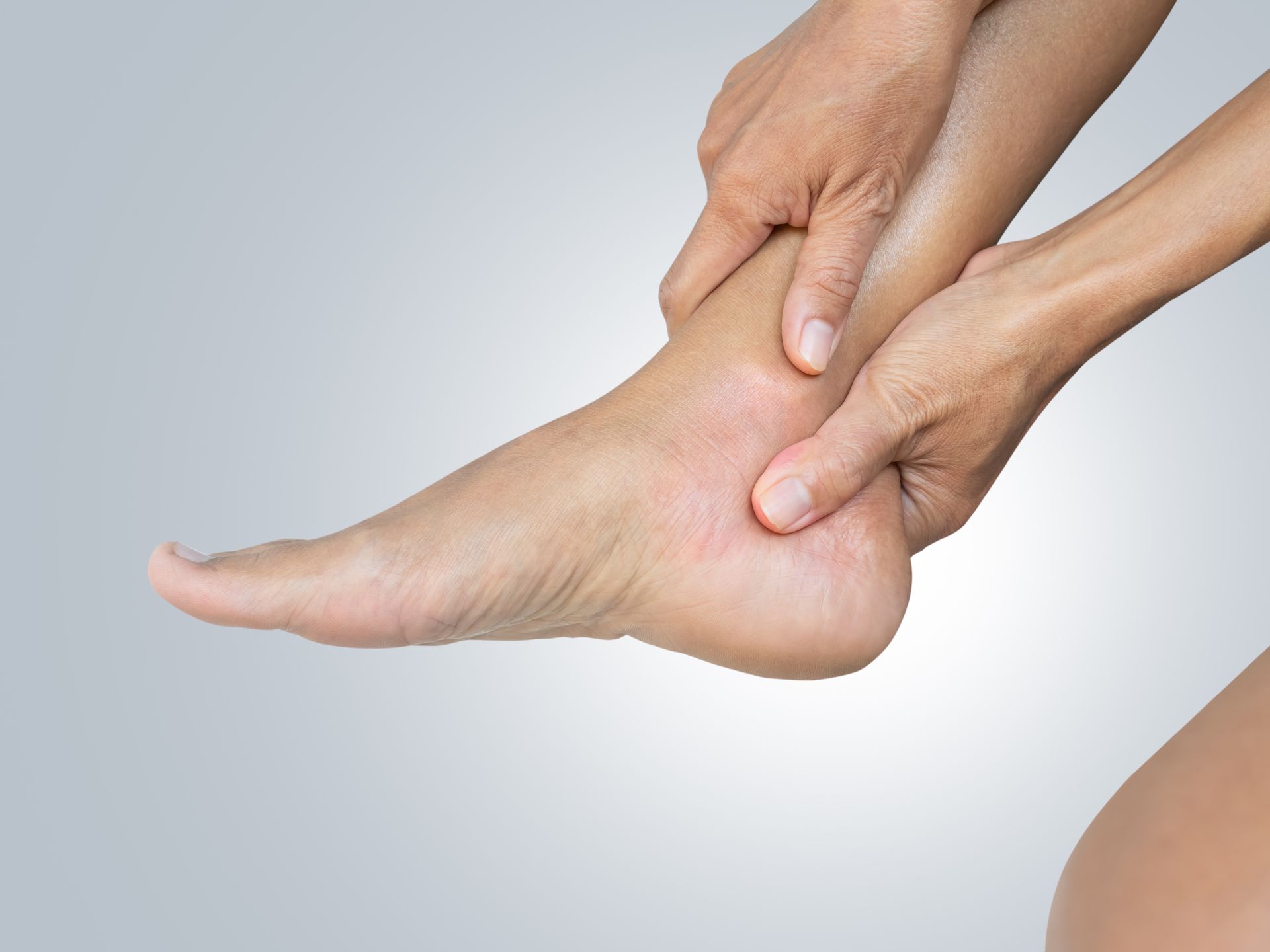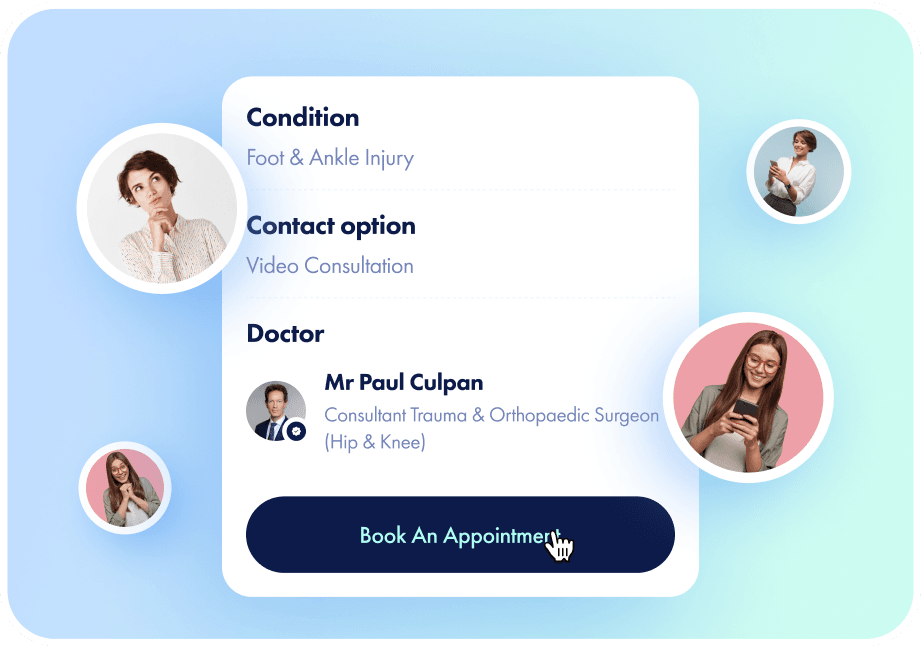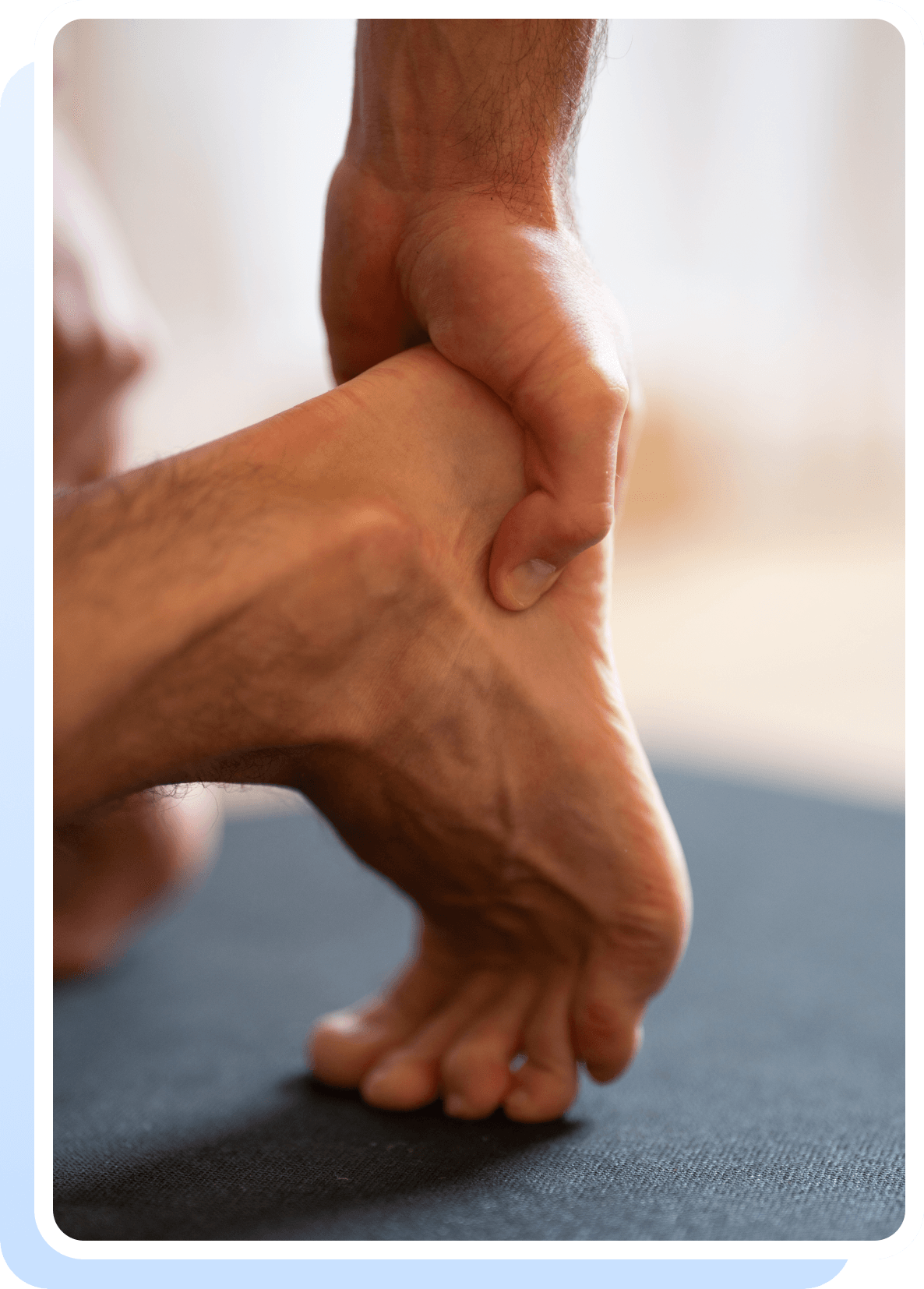
Conveniently reserve your spot with just a few clicks through our easy-to-use online booking system.


Plantar fasciitis is a common foot condition causing pain in the heel, specifically at the point where the plantar fascia tissue connects to the heel bone. The plantar fascia is a ligament that supports the arch of your foot and absorbs shock during activity.
You are not required to provide a referral letter from your doctor or GP.
Start a visit quickly and discreetly whenever works best for you.
Our doctors review symptoms, prescribe treatments if needed.
Proceed with your healthcare journey as you wish. You're in control.
You control medical records, access anytime.
A combination of factors increases plantar fasciitis' vulnerability to stress and inflammation. Understanding these aspects is crucial for prevention and management.
If you're between 40 and 60 years old, you might have a higher chance of encountering plantar fasciitis. As we age, the plantar fascia wears down naturally, making it more susceptible to getting inflamed.
Occupations that demand prolonged standing or walking (teachers, nurses, and individuals in the manufacturing sector, as examples) pose an increased risk. Continuous stress increases the chances of inflammation.
Individual foot anatomy—such as flat feet, high arches, or irregular gait patterns—affects body weight distribution. This imbalance can result in excess stress on the plantar fascia.
Increased body weight puts pressure and stress on the feet.
Certain exercises, especially those focusing on the heel and adjacent tissues like running and team sports, increase the predisposition to plantar fasciitis.
Wearing shoes with poor cushioning or inadequate support can exacerbate stress on the plantar fascia. Proper footwear is essential to distribute body weight evenly across the feet and alleviate pressure on the heel and surrounding tissues.
To mitigate these risks, you can adopt preventative approaches. These include choosing footwear that offers ample support, managing body weight to minimise undue stress on the feet, and being cautious of engaging in activities that overstrain the feet.
Regular stretches can also enhance muscular flexibility and strength, further protecting against plantar fasciitis.
Сontact us to schedule an appointment or learn more
Conveniently reserve your spot with just a few clicks through our easy-to-use online booking system.
Have a question or request? Drop us a message, and our team will get back to you promptly.
Feel free to give us a call, and our friendly staff will be glad to assist you over the phone.
From Home or Face to Face, all at your convenience
Schedule a Video Consultation or a Face-to-Face appointment at your convenience by using our online booking system.
Schedule a Video Consultation or a Face-to-Face appointment at your convenience by using our online booking system.
Your dedicated Specialist Doctor will provide you with personalized treatment, tailoring it to your specific needs, and may include necessary medication.
People with plantar fasciitis typically encounter a distinct set of symptoms that affect the heel and sole of the foot. These include the following:
The most common symptom is a sharp, stabbing pain in the heel, often most intense with the first steps in the morning or after lengthy periods of sitting or standing.
It's not uncommon for the pain to be absent during exercise but occur shortly afterwards.
A noticeable stiffness and pain that happens in the morning or after periods of inactivity.
Early recognition of these symptoms is vital. If pain persists or impacts daily activities, seeking professional consultation to mitigate progression and address the underlying issues is essential. Get in touch with our friendly London team today, and start your journey to recovery.
Our facilities are regularly inspected to ensure compliance with the highest industry standards.
Quick access to parking and
public transport
Helpful, accommodating staff
Comfortable and
calming environment










